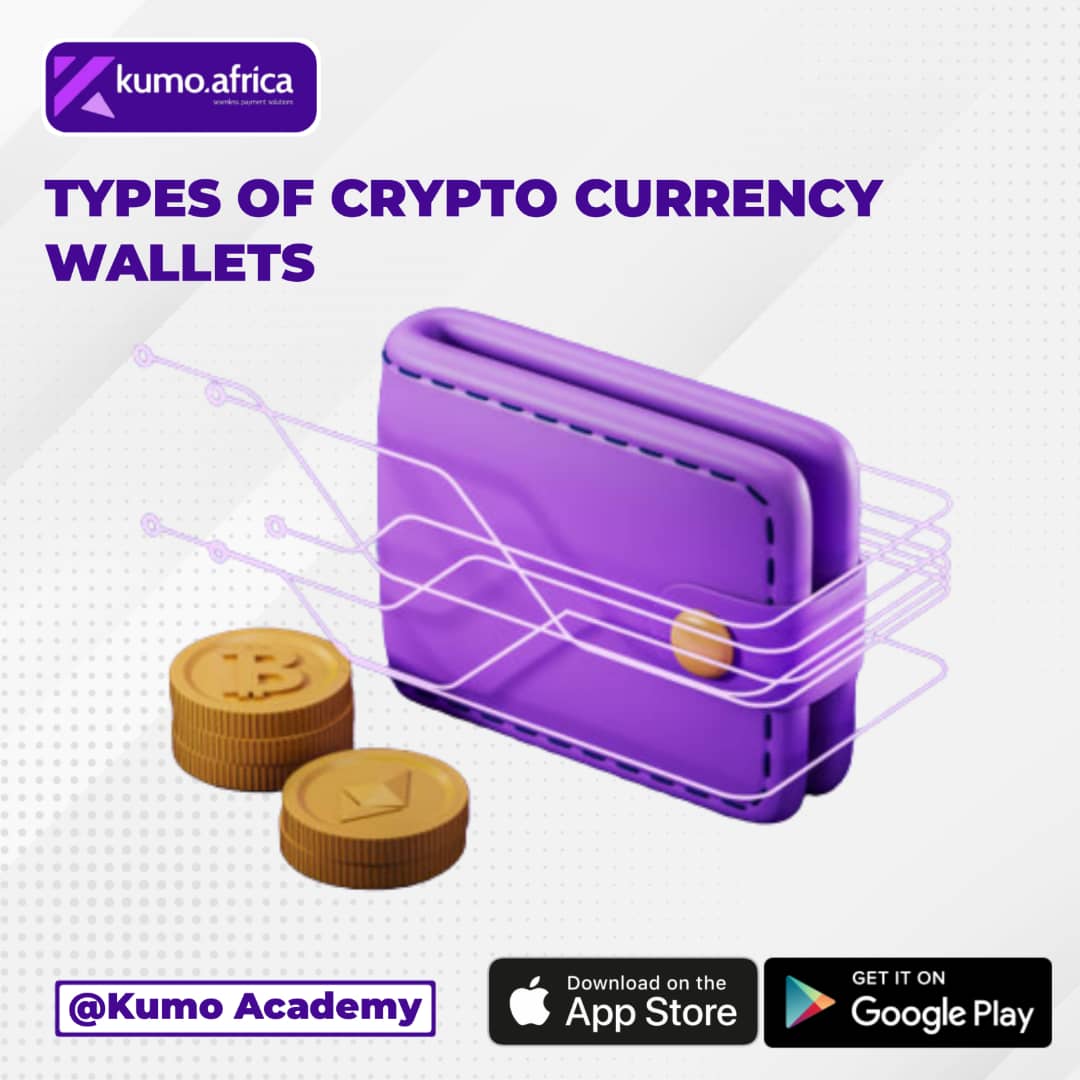What comes to your mind when you hear types of cryptocurrency wallets?
There are different types of cryptocurrency wallet but in this context, I am not referring to the unending list of wallets that pops up when you search for a cryptocurrency wallet on Play store or App store.
There are different classifications of cryptocurrency wallets and this often leads to misconceptions.
Type of cryptocurrency wallets based on internet connectivity
They are two types of cryptocurrency wallets based on whether you are required to be connected to the internet or not. These are hot and cold wallets.
Hot wallet
Hot wallet refers to cryptocurrency wallets that are connected to the internet.
Specifically, they require an internet connection before you can perform any transaction.
Examples are desktop wallets, mobile wallets, web wallets among others.
Cold wallet
Contrary to hot wallets, cold wallets are stored offline and do not require internet connectivity.
Examples of cold wallets are hardware wallet and paper wallet.
Type of cryptocurrency wallet based on functionality.
This is an extension to the previous classification. It is referred to as the extension because it is mostly common for hot wallets.
There are two types of cryptocurrency wallets under these category. These are single coin and multi-coin wallet
Single coin wallets
As the name implies, these wallets support a single currency.
Due to the possibility of building on an existing blockchain, a single coin wallet may support the native coin of the blockchain and other tokens built on the blockchain such as Pera Algo wallet.
Bitcoin wallet, Bitcoin cash wallet are examples of a single coin wallet.
Multi-coin wallet
A multi-coin wallet is a cryptocurrency wallet that supports more than one cryptocurrencies.
Multi-coin wallets make it easier to control and have an overview of your entire portfolio all-in-one app.
Examples are Kumo wallet, Trust wallet, Metamask.
Types of cryptocurrency wallet based on control
This is another variety of hot wallets.
A cryptocurrency wallet has both a public and private key. The public key is the popular wallet address that you share with other people. It is used to facilitate transactions on the blockchain.
On the other hand, a private key is meant to remain private and known by you alone. Private keys are used to confirm transactions and recover your wallet.
On this note, there are two types of cryptocurrency wallets; custodial and non-custodial wallets
Non-custodial wallet
These are wallets that give you access to your private key.
The private keys are not stored or saved by whatever app that you are using.
In this sense, you take full responsibility for your crypto assets.
Examples are Metamask, Trust wallet
Custodial wallets
These are cryptocurrency wallets where the private keys are saved by a third-party, usually the service providers.
For a custodial wallet, you can access your public key by signing into the platform but you don’t have access to your private key. All exchanges provide custodial wallets.
Writer’s corner
Your choice of wallet depends on whether you are holding for long-term or short-term and the amount of funds that you keep in the wallet and ease of access.
Do you miss any of this?
Basics of blockchain technology
History of blockchain technology
Introduction to cryptocurrency
Different types of cryptocurrency.
About Kumo
Kumo, registered as Kumo Technologies Inc in Delaware, U.S. is a fiat and crypto social payment app which allows users to exchange fiat (NGN) to crypto, save and earn interest in dollar with as low as $5, utility payment such as DSTV subscription, airtime, data among others.
Kumo wallet is your all-in-one social payment app for seamless payment solutions.
Website | Twitter | Facebook | Instagram | Email

